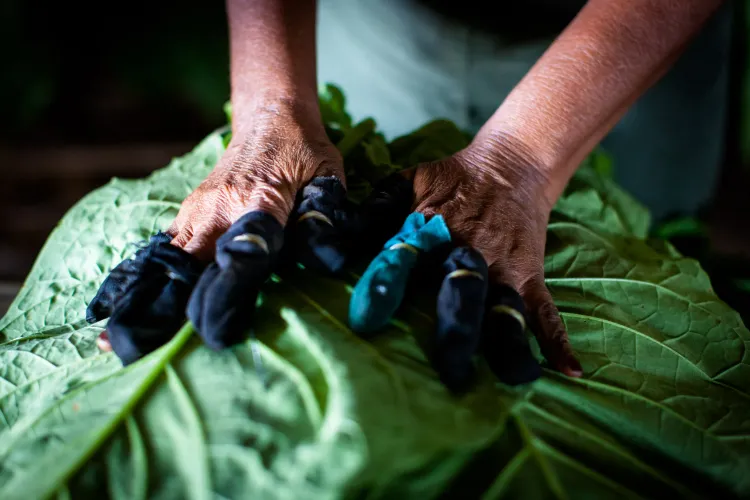Is Namibia Planning Tax Reforms on Tobacco and Alcohol to Address Public Health Issues?

Synopsis
Key Takeaways
- Namibia is considering tax reforms for tobacco and alcohol products.
- The reforms aim to reduce substance abuse and protect public health.
- The WHO supports Namibia's commitment to the MPOWER policy package.
- Non-communicable diseases account for 41% of deaths in Namibia.
- Current alcohol consumption rates are alarmingly high.
Windhoek, July 14 (NationPress) Namibia is exploring significant tax reforms for tobacco and alcohol products as part of efforts to combat increasing substance abuse and enhance public health, Minister of Health and Social Services (MOHSS) Esperance Luvindao announced on Monday.
This declaration came during the opening of a four-day workshop on tobacco and alcohol control policies in the capital, Windhoek.
Luvindao emphasized Namibia's dedication to the World Health Organization (WHO)'s MPOWER policy package, a thorough strategy for tobacco control that encompasses monitoring usage, safeguarding against smoke exposure, providing cessation support, delivering warnings about risks, enforcing advertising bans, and increasing taxes, as reported by Xinhua news agency.
She noted that Namibia instituted the Tobacco Product Control Act in 2010, with regulations following in 2014. "Within this policy and legislative framework, Namibia has achieved notable progress in advancing tobacco control, in alignment with the WHO MPOWER Strategy."
Luvindao remarked that the detrimental use of tobacco and alcohol continues to strain the health system and is a significant contributor to preventable illnesses and fatalities.
"It is evident that additional deterrent measures are essential, particularly regarding tax reforms, to dissuade the consumption of these products," she stated.
According to Luvindao, the MOHSS, with WHO's support, has crafted a national strategic plan and is currently revising the Tobacco Act to regulate new, emerging tobacco and nicotine products, including but not limited to hookah, e-cigarettes, and vapes.
"Simultaneously, we are continually updating national alcohol policies to address alcohol abuse in the country," she added.
Meanwhile, WHO Representative Richard Banda, speaking on his behalf, noted that in Namibia, non-communicable diseases (NCDs) represent an estimated 41 percent of all deaths.
"Tobacco use and alcohol consumption are primary risk factors contributing to the onset of NCDs," he stated.
Banda explained that the workshop is part of a program aimed at enhancing tobacco control measures and strategies to minimize harmful alcohol use, ultimately leading to improved health outcomes for the population.
The latest data (2022) on alcohol consumption in Namibia is alarmingly concerning, with an average of 12 liters of pure alcohol consumed per capita annually among individuals aged 15 and older, compared to 3.5 liters regionally and 5.0 liters globally.
"We must take decisive action to safeguard health by addressing remaining policy gaps, bolstering enforcement, and investing in proven strategies, such as MPOWER and SAFER measures," Banda asserted.
SAFER stands for the five most effective interventions designed to mitigate alcohol-related harm.









